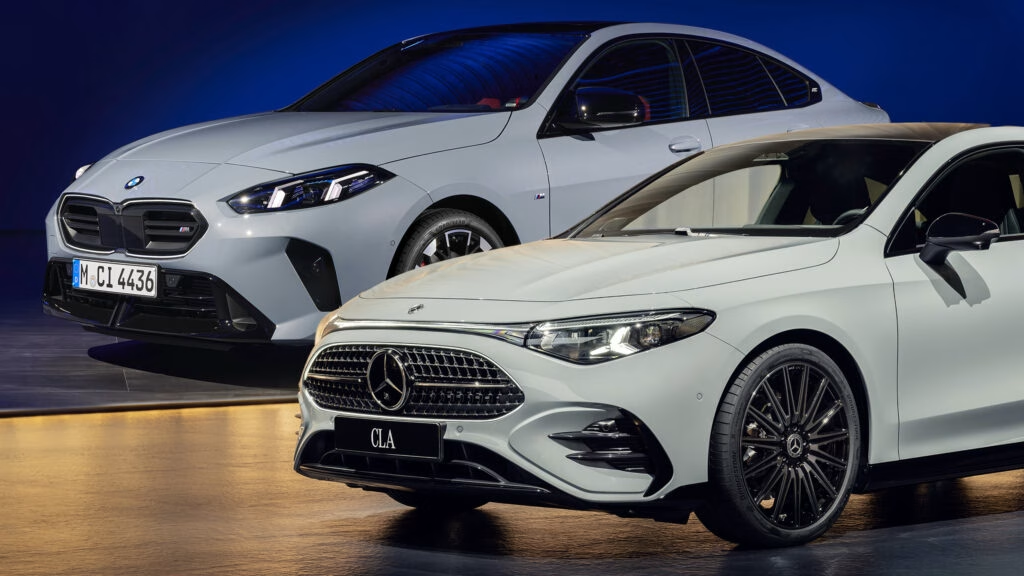Could Your Next Mercedes Really Have a BMW Engine Under the Hood?
What’s Driving Mercedes to Consider BMW Engines for Its Hybrids?
If you’ve ever found yourself in the middle of a Mercedes vs. BMW debate, you know how deep the rivalry runs. Yet, behind the scenes, these two German giants are quietly exploring a partnership that could see future Mercedes hybrids and plug-in hybrids powered by BMW’s four-cylinder engines. Sounds wild, right? But there’s a method to the madness.
Mercedes is facing the same reality as every other automaker: the road to full electrification is bumpy, and the demand for electric vehicles isn’t growing as fast as everyone predicted. According to the International Energy Agency, global EV sales grew by 35% in 2023, but that’s a slowdown compared to previous years. Mercedes CEO Ola Källenius even called their recent strategy shift a “course correction,” signaling that combustion engines—especially efficient hybrids—will stick around longer than planned.
By sourcing engines from BMW, Mercedes can cut the massive costs of developing new four-cylinder engines from scratch. That frees up resources to focus on their six- and eight-cylinder powerplants, which remain a core part of the brand’s identity. It’s a classic case of working smarter, not harder.
How Would This Deal Benefit Both Mercedes and BMW?
Let’s be honest: this isn’t just about saving a few euros. For Mercedes, buying BMW’s proven four-cylinder engines (like the B48 turbocharged 2.0-liter) means faster time to market, less R&D risk, and a smoother transition as they juggle combustion, hybrid, and electric models.
BMW, on the other hand, gets to ramp up production at its Steyr facility in Austria, filling spare capacity and boosting revenue. It’s a win-win—Mercedes gets a reliable, European-built engine for its global lineup, while BMW turns a profit on hardware it already knows inside and out.
There’s even talk of expanding this partnership to include transmissions and entire electrified powertrains. And if things go well, joint production in the United States could help both brands dodge tariffs and share costs in a key market. That’s not just clever—it’s essential in today’s unpredictable auto industry.
Why Not Stick With Geely or Go All-In on Electric?
Mercedes already has a supply deal with Geely for a 1.5-liter turbo engine used in the CLA mild-hybrid. But for markets like North America and Europe, a European-built engine is a better fit—both for regulatory reasons and brand perception. After all, Mercedes buyers expect a certain pedigree under the hood.
As for going fully electric, the reality is that consumer demand and charging infrastructure just aren’t there yet. A recent McKinsey report found that while EV interest is rising, many buyers still prefer hybrids or plug-in hybrids for their flexibility and range. Mercedes’ move to source BMW engines signals a pragmatic approach: keep options open, adapt to market realities, and avoid putting all their eggs in the EV basket.
What Does This Mean for the Cars You’ll Actually Drive?
If you’re eyeing a new Mercedes in the next few years, don’t be surprised if it’s powered by a BMW engine—especially if you’re looking at a hybrid or plug-in hybrid. The first models could hit the road as early as 2027, according to industry insiders.
BMW’s B48 engine is already a workhorse in the BMW and Mini lineup, known for its balance of power, efficiency, and adaptability. It’s compatible with both longitudinal and transverse layouts, making it a perfect fit for everything from sporty sedans to family SUVs. In fact, the most potent version of this engine powers the BMW X1 and X2 M35i, delivering punchy performance and solid reliability.
For Mercedes, this means the ability to offer a broader range of electrified vehicles without stretching their engineering teams too thin. For buyers, it could mean better performance, improved efficiency, and—let’s be real—a bit of bragging rights at the next cars-and-coffee meet.
Could This Collaboration Change the Luxury Car Landscape?
This isn’t the first time fierce rivals have joined forces when the stakes are high. Think of Toyota and Subaru co-developing the GR86/BRZ twins, or Ford and Volkswagen teaming up on electric vans. In a world where development costs are skyrocketing and regulations are tightening, even the proudest brands are rethinking what it means to compete.
If Mercedes and BMW can pull this off, it could set a new standard for pragmatic partnerships in the luxury segment. It’s not about diluting their identities—it’s about surviving and thriving in a rapidly changing market. The move could also inspire other automakers to look past old rivalries and find common ground where it counts.
The big takeaway? The future of luxury cars isn’t about perfection—it’s about smarter adjustments. Start with one change this week, and you’ll likely spot the difference by month’s end. Whether you’re a die-hard Mercedes fan or a BMW loyalist, get ready for a world where collaboration drives innovation—and maybe, just maybe, your next car will have a little bit of both.

